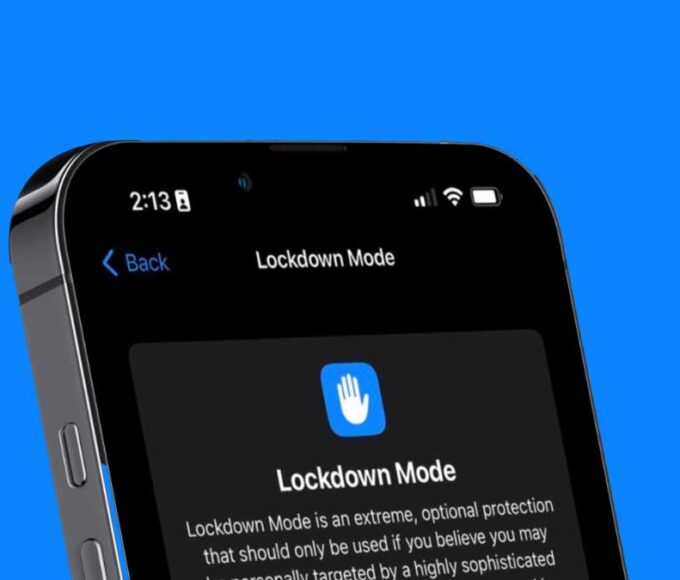- Home
- Billionaires
- Investing Newsletters
- 193CC 1000
- Article Layout 2
- Article Layout 3
- Article Layout 4
- Article Layout 5
- Article Layout 6
- Article Layout 7
- Article Layout 8
- Article Layout 9
- Article Layout 10
- Article Layout 11
- Article Layout 12
- Article Layout 13
- Article Layout 14
- Article Sidebar
- Post Format
- pages
- Archive Layouts
- Post Gallery
- Post Video Background
- Post Review
- Sponsored Post
- Leadership
- Business
- Money
- Small Business
- Innovation
- Shop
Recent Posts
New SpyAgent Malware Targets Android Devices

Security researchers have uncovered a sophisticated and dangerous new hacking campaign targeting Android devices. This threat, known as SpyAgent malware, employs inventive methods to compromise user security. It disguises itself within a wide range of 280 different apps, utilizing optical character recognition (OCR) technology to execute its malicious activities. If successful, this malware could lead to significant financial losses for affected users, as its primary aim is to steal sensitive information.
The McAfee Mobile Research Team recently reported that over 280 apps have been identified as vehicles for the SpyAgent malware, which has been active since the beginning of the year. These deceptive apps masquerade as various legitimate utilities, from banking to streaming services. According to SangRyol Ryu, the author of the report, these apps use distraction tactics such as endless loading screens, unexpected redirects, or brief blank screens to obscure their true intentions.
The core functionality of these fraudulent apps is to gather a range of personal data from infected devices. This includes SMS text messages, contacts, and notably, images stored on the device. Once this data is collected, it is transmitted to a remote server where the attackers conduct their operations. The fake apps are often part of a broader phishing campaign designed to mislead users into downloading what they believe is a legitimate application. Instead, they are actually installing an Android Package Kit (APK) file that requests excessive permissions. These permissions include access to SMS messages, contacts, and data storage, with a primary focus on extracting and scanning users’ photos using OCR technology. The attackers are not interested in private or explicit images but are instead searching for a mnemonic key.
A mnemonic key is essentially a 12-word passphrase (or up to 24 words) used to secure cryptocurrency wallets. By obtaining this passphrase, the attackers gain access to and potentially deplete the crypto assets of their victims. Ryu noted that the focus on cryptocurrency recovery suggests a significant emphasis on exploiting victims’ digital assets.
While SpyAgent currently poses a threat primarily to Android users, there is a possibility that the malware’s developers could expand their attacks to iOS devices. Ryu mentioned that McAfee researchers discovered a reference to “iPhone” in the malware’s admin panel code, although no direct evidence of an iOS version has been found. Nonetheless, the potential for such an expansion remains. To protect against SpyAgent and similar threats, users should remain vigilant about phishing scams, install apps exclusively from official app stores, avoid clicking on links in unsolicited emails or text messages, and be cautious about granting excessive permissions to apps.
Google recommends that Android users leverage Google Play Protect to scan both apps and devices for harmful behavior. While Google Play Protect is enabled by default, users should verify that it remains active. To check, open the Google Play app, tap on your profile icon, go to settings, and ensure that “Scan apps with Play Protect” is toggled on.
The upcoming release of Android 15 will introduce new security features, including Google Play Protect’s live threat detection. Dave Kleidermacher, Vice President of Engineering for Android Security and Privacy, revealed that the current version of Google Play Protect scans approximately 200 billion Android apps daily. This extensive scanning helps protect over 3 billion Android users from malware and malicious apps. Kleidermacher highlighted that Google Play Protect’s on-device AI capabilities are being expanded with live threat detection. This enhancement aims to improve fraud and abuse detection for apps attempting to conceal their activities. The updated Play Protect will analyze additional behavioral signals related to sensitive permissions and interactions with other apps and services. If suspicious behavior is detected, the service will review the app further and take action, such as disabling the app or issuing a warning to users based on the severity of the threat. For users concerned about privacy implications, Kleidermacher assured that the on-device AI scanning is conducted in a privacy-preserving manner through Google’s Private Compute Core. This approach allows Google to protect users without collecting personal data.
In summary, the SpyAgent malware presents a serious threat to Android users, employing innovative techniques to steal sensitive information and cryptocurrency assets. Users are advised to remain cautious and utilize available security measures, including Google Play Protect, to safeguard their devices and personal data.
Recent Posts
Categories
- 193 Countries Consortium Partner1
- 193cc Digital Assets2
- 5G1
- Aerospace & Defense48
- AI37
- Arts3
- Banking & Insurance11
- Big Data3
- Billionaires1,467
- Boats & Planes1
- Business332
- Careers13
- Cars & Bikes79
- CEO Network1
- CFO Network17
- CHRO Network1
- CIO Network1
- Cloud10
- CMO Network18
- Commercial Real Estate7
- Consultant1
- Consumer Tech194
- CxO1
- Cybersecurity73
- Dining1
- Diversity, Equity & Inclusion4
- Education7
- Energy8
- Enterprise Tech29
- Events11
- Fintech1
- Food & Drink2
- Franchises1
- Freelance1
- Future Of Work2
- Games149
- GIG1
- Healthcare79
- Hollywood & Entertainment203
- Houses1
- India’s 1000 Richest1
- Innovation46
- Investing2
- Investing Newsletters4
- Leadership65
- Lifestyle11
- Manufacturing1
- Markets20
- Media327
- Mobile phone1
- Money13
- Personal Finance2
- Policy569
- Real Estate1
- Research6
- Retail1
- Retirement1
- Small Business1
- SportsMoney42
- Style & Beauty1
- Success Income1
- Taxes2
- Travel10
- Uncategorized14
- Vices1
- Watches & Jewelry2
- world's billionaires1,436
- Worlds Richest Self-Made Women2
Related Articles
Android & iPhone Users Urged to Run Security Checks
With the rise of cyber threats targeting both Android and iPhone users,...
By 193cc Agency CouncilJanuary 1, 2025Apple Warns: Avoid Lockdown Mode on iPhone
Apple’s latest security alert for iPhone users raises important concerns about the...
By 193cc Agency CouncilDecember 31, 2024750 Million Android Users Face Urgent Security Risks
Google has made significant strides in improving Android’s security ecosystem, aiming to...
By 193cc Agency CouncilDecember 31, 2024Surge in Paper Werewolf Cyberattacks on Russian Targets
A troubling rise in espionage-driven attacks using Microsoft Windows Word documents has...
By 193cc Agency CouncilDecember 30, 2024















Leave a comment